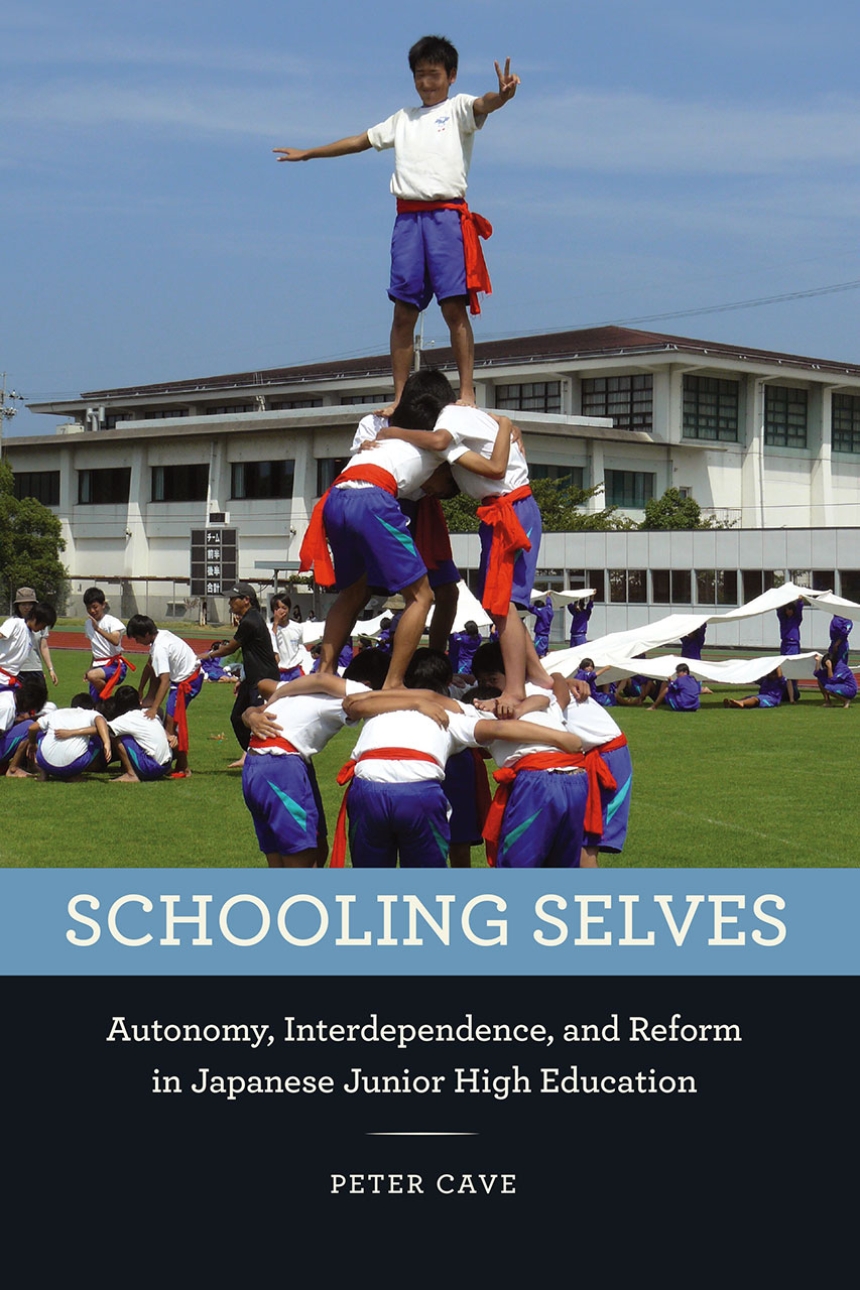Schooling Selves
Autonomy, Interdependence, and Reform in Japanese Junior High Education
9780226367866
9780226367729
9780226368054
Schooling Selves
Autonomy, Interdependence, and Reform in Japanese Junior High Education
Balancing the development of autonomy with that of social interdependence is a crucial aim of education in any society, but nowhere has it been more hotly debated than in Japan, where controversial education reforms over the past twenty years have attempted to reconcile the two goals. In this book, Peter Cave explores these reforms as they have played out at the junior high level, the most intense pressure point in the Japanese system, a time when students prepare for the high school entrance exams that will largely determine their educational trajectories and future livelihoods.
Cave examines the implementation of “relaxed education” reforms that attempted to promote individual autonomy and free thinking in Japanese classrooms. As he shows, however, these policies were eventually transformed by educators and school administrators into curricula and approaches that actually promoted social integration over individuality, an effect opposite to the reforms’ intended purpose. With vivid detail, he offers the voices of teachers, students, and parents to show what happens when national education policies run up against long-held beliefs and practices, and what their complex and conflicted interactions say about the production of self and community in education. The result is a fascinating analysis of a turbulent era in Japanese education that offers lessons for educational practitioners in any country.
Cave examines the implementation of “relaxed education” reforms that attempted to promote individual autonomy and free thinking in Japanese classrooms. As he shows, however, these policies were eventually transformed by educators and school administrators into curricula and approaches that actually promoted social integration over individuality, an effect opposite to the reforms’ intended purpose. With vivid detail, he offers the voices of teachers, students, and parents to show what happens when national education policies run up against long-held beliefs and practices, and what their complex and conflicted interactions say about the production of self and community in education. The result is a fascinating analysis of a turbulent era in Japanese education that offers lessons for educational practitioners in any country.
296 pages | 15 halftones, 8 tables | 6 x 9 | © 2016
Asian Studies: East Asia
Education: Comparative Education, Pre-School, Elementary and Secondary Education
Reviews
Table of Contents
Acknowledgments
Note on Conventions
Introduction
Chapter 1. Individuals, Autonomy, and Society in Japanese Education
Chapter 2. Reshaping Reform: Discipline, Autonomy, and Group Relations
Chapter 3. Classes, Clubs, and Control
Chapter 4. Mass Games and Dreams of Youth
Chapter 5. Changing the Classroom? Autonomy and Expression in Japanese Language and Literature
Chapter 6. The Challenges and Trials of Curricular Change
Chapter 7. To Graduation and Beyond: High School Entrance and Juku
Conclusion
Fieldwork Appendix
Notes
Glossary
References
Index
Note on Conventions
Introduction
Chapter 1. Individuals, Autonomy, and Society in Japanese Education
Chapter 2. Reshaping Reform: Discipline, Autonomy, and Group Relations
Chapter 3. Classes, Clubs, and Control
Chapter 4. Mass Games and Dreams of Youth
Chapter 5. Changing the Classroom? Autonomy and Expression in Japanese Language and Literature
Chapter 6. The Challenges and Trials of Curricular Change
Chapter 7. To Graduation and Beyond: High School Entrance and Juku
Conclusion
Fieldwork Appendix
Notes
Glossary
References
Index
